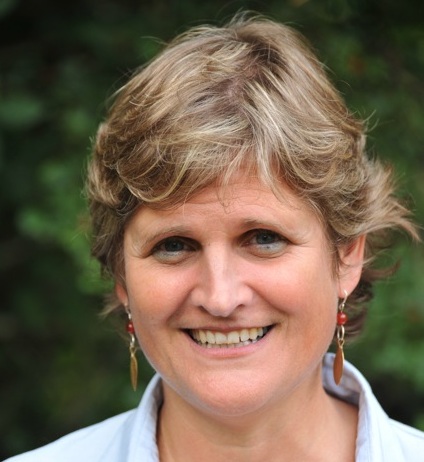Cultivating Peace Every Day

Message from Isabelle Perrin Director General of ATD Fourth World for the International Day for the Eradication of Poverty 17 October 2012
Who could have imagined, on October 17th exactly 25 years ago, that by bringing together thousands of people from around the world at the foot of the Eiffel Tower in Paris, a man born into deep poverty named Joseph Wresinski would have initiated what has now become the International Day for the Eradication of Poverty?
It is a day for refusing to accept the intolerable.
Recently families who were transplanted far from their homes in New Orleans by Hurricane Katrina co-authored a unique book, Not Meant to Live Like This [1]. It is about the solidarity and the sense of community they built, despite the extreme poverty of the under-resourced neighborhoods they had to flee when the storm hit. Although many of them remain scattered far and wide because the city chose not to rebuild low-income housing, they carry the memory of their shared past. Through this book, they refuse to allow their communities to disappear from the history of humanity.
Among those celebrating the launch of this book was Ray, a young father who worked as a garbage collector. In September, Ray hurt his elbow on the job, leading to a bacterial infection. He went to the hospital three times, but was only given painkillers and told to quiet down and go home when the pain got so intense that he cried out. All this because he didn’t have health insurance. The pain only got worse, so he went to the emergency room at a different hospital. After he had waited for hours, the staff noticed he was having trouble breathing and finally admitted him. But by the next day, he had died.
A few days ago, his relatives and friends were selling homemade food in their neighborhood to try to raise enough money for his funeral.
How many people like him have been condemned to die too young, too poor, too insulted to be taken seriously?
How many people like his family and neighbors have been condemned to homelessness, pushed out of their homes, banished, and hidden from sight?
October 17th, a day to honor them and the millions of people who confront the impossible, those whose courage and whose very lives call into question our certainties, our ways of thinking, and actions. “If you live in deep poverty, you’ll never know peace,” says Michel Brogniez [2] “Peace begins on the day that you realize that the person in front of you is the same as you are.”
In Guatemala, as in every country, parents live with the anguish of not being able to protect their teenagers from poverty, and of seeing them caught up in street violence. Doña Maritza explains, “I lost my son when he was 15, and he was never found. If I had shut myself away sobbing, I might already be dead. Staying isolated and locked into suffering, not speaking to anyone—to me, that would be the worst.” [3]
The worst is just what Doña Maritza refuses to accept. Every time she hears about a youth who has been incarcerated or killed, she goes to visit the mother so that she and the whole family will know they are not alone or locked into silence.
At the National Palace in Guatemala City, since the end of the civil war that tore the country apart, every day a new “White Rose of Peace” is laid in the courtyard. This fragile flower expresses the necessity of a daily commitment to cultivate peace. On October 17th, the person who lays the new rose is someone whose everyday life is a struggle against the violence of extreme poverty.
For peace to bloom, we must persevere in our efforts. Peace, as Jaime Muñoz [4] says, “is a group effort, a common fight for understanding and unity. And the group effort is first and foremost the effort that each person makes. It’s in this effort that we find what is human in ourselves.”
What new steps forward will we risk taking together to root peace in the hopes and the daily efforts of people living in extreme poverty and make it bloom?
[1] By ATD Fourth World Movement, with a foreword by William Julius Wilson, and available at: http://amzn.to/W82tXb
[2] From the video, “Extreme Poverty Is Violence,”
[3] Ibid
[4] “Extreme Poverty Is Violence – Breaking the Silence – Searching for Peace: Final Report and Conclusions of the 2009-2012 Action-Research Project,”

